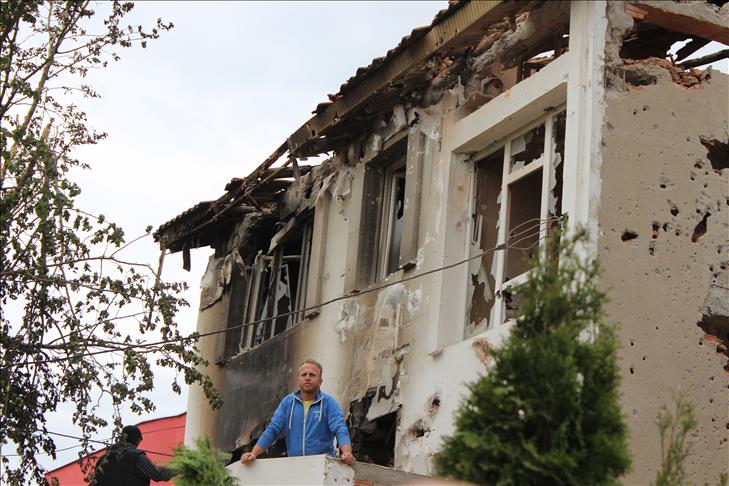
SARAJEVO/SKOPJE (AA) - Ethnically-fragile Macedonia has returned to the forefront of world attention after last week’s deadly incidents in the country.
Severe clashes between security forces and an armed group left 22 people, including eight police officers, in the city of Kumanovo near the Kosovo border, an area mainly inhabited by ethnic Albanians.
According to the 2002 population census, Kumanovo is home to 105,000 people and most of them are Macedonians as well as Albanians, Turks, Serbians, Romans and other ethnic groups.
These fresh clashes raised questions about whether conflicts between Macedonians and Albanians have returned.
Macedonian authorities are of the opinion that the armed group involved in Sunday’s clash was a criminal organization, unlike several circles that said the clash had a political connection.
In 2001, Macedonians and Albanians engaged in an armed conflict, which came to an end after the signing of the Ohrid Agreement, which gave Albanians more political rights.
But Albanians have claimed the agreement was not implemented.
Macedonia also grabbed attention with its anti-government protests, wiretapping crisis between ruling and opposition parties and the latest attack on a police station in the north.
Last month, a police station in Gosince, near Kumanovo, was attacked by a group of armed men who claimed to be members of the disbanded Kosovo Liberation Army.
The recent incidents, contrary to expectations, did not trigger any tensions between Macedonians and Albanians, and seemed to have the region’s people closer together.
The fact that most of the attackers who illegally entered Macedonia were Kosovars was feared to negatively affect relations between the two nations, but discreet calls by Macedonian government officials enabled the incident to be presented as one of police intervention against an armed assault.
Kumanova residents and experts are of the opinion that the way the operation was held was "wrong" because police launched the assault without warning civilians and evacuating them beforehand.
Bashkim Bakiu, an official from Macedonia's Political Research Center, said the operation was contrary to international norms.
“Around 15,000 people live in the street where the operation was held, therefore residents should have been informed ahead of the operation," said Bakiu.
Bakiu said he had theories the recent incidents could be about the wiretapping event that revealed corruption of Macedonian politicians, claiming such an armed group could be put forward to keep national attention away from the wire tappings.
Jidas Daskalovski, president of the Politics and Research Center, called the operation “heavy,” and added that Macedonians, Albanians, Bosniaks and Serbians lived in the operation region.
“It is essential to evaluate the incident in line with other political developments in the country,” said Daskalovski. He criticized the government for calling the operation “successful.”
Daskalovski added that the recent incidents highlighted a potential terror attack in an anti-government demonstration to be held on May 17.
“Any terror attacks to be held during the rally might cause escalation of the incident,” he said.
Ethnic tensions are nothing new in the multi-ethnic country, where about a quarter of the population of 2.1 million is ethnic Albanian.
Macedonia declared its independence from Yugoslavia in 1991.
Anadolu Agency website contains only a portion of the news stories offered to subscribers in the AA News Broadcasting System (HAS), and in summarized form. Please contact us for subscription options.

